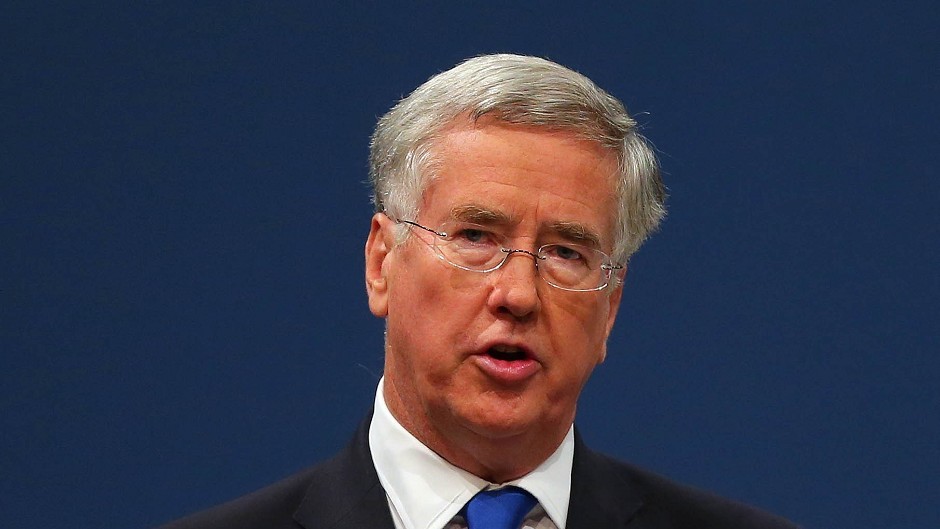Defence Secretary Michael Fallon vowed last night not to let “any left-wing coalition” of Labour and the SNP disrupt the UK Government’s plan to renew the Trident nuclear deterrent.
The Tory Cabinet minister insisted he was not prepared to “gamble” with Britain’s national security.
Speaking to activists at the Conservative Party conference in Manchester, he said Labour’s approach under Jeremy Corbyn “couldn’t be more different or more dangerous”.
Last week the new Labour leader revealed he – as prime minister – would never press the button to launch a nuclear strike, prompting disquiet in the shadow cabinet.
Mr Fallon said: “Labour responded to their election defeat by electing a leader who would weaken our national security, who would scrap Trident, who would leave Nato.
“I’m not prepared to gamble with our national security so I will be asking MPs of all parties to put national security first and support the building of four new ballistic submarines in this parliament.
“We will not let any left-wing coalition of Labour and the SNP stop us.”
Aberdeen councillor Alan Donnelly pointed to the jobs at Faslane on the Clyde and the historic connection with the Royal Navy that Scotland has.
He said: “Trident has been the mainstay all these years. It’s been part and parcel of western defences in the UK for 46 years.
“It’s a deterrent. Without it we could be attacked and face dangers. The SNP say nobody will attack us, well, try telling that to Isis.”
The four new submarines would replace those which are due to go out of service. A vote is expected next year on the final decision to invest in the deterrent.
Mr Fallon added: “For 46 years our deterrent has been deployed every hour of every day. Anyone thinking of ending this unbroken patrol has to be absolutely certain that no nuclear threats will emerge in the 2030s, 2040s and 2050s.”
In his speech, he also insisted protecting Britain’s streets from Isis should not be left to French, Australian and American war planes.
In a clear signal the UK Government is moving closer to an expected Commons vote on expanding Britain’s bombing campaign from Iraq into Syria, he said Britain faces its “most serious threat in a generation”.
